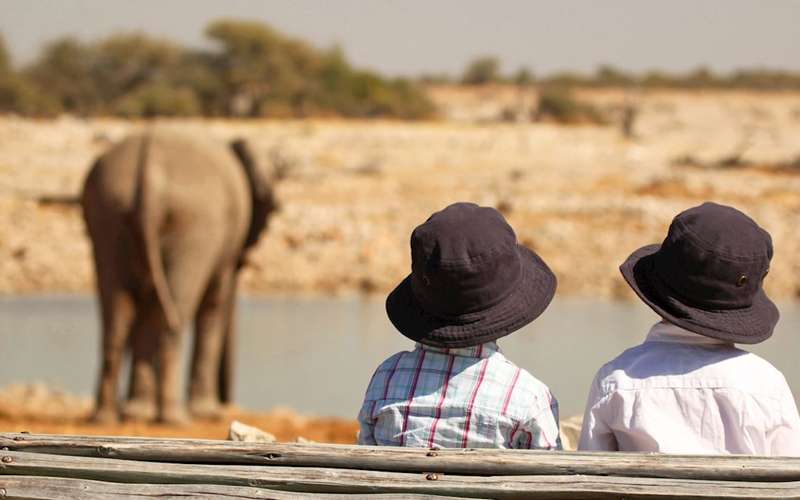Embarking on a Tanzania safari is an exciting adventure that promises unforgettable wildlife encounters and stunning landscapes. However, ensuring good health throughout your journey is crucial for an enjoyable and safe experience. This guide provides essential health tips to help you prepare for your safari, from vaccinations and travel insurance to staying hydrated and sun-safe.
Pre-Trip Health Preparations
Proper preparation is key to a healthy safari. Before you depart, schedule a visit with your healthcare provider to discuss necessary vaccinations, medications, and travel insurance. Ensuring you’re fully prepared will help you relax and enjoy your adventure without health concerns.
- Vaccinations and Medications: Consult your doctor about recommended vaccinations for Tanzania, such as yellow fever, hepatitis A and B, typhoid, and tetanus. Malaria is a risk in many areas, so obtaining antimalarial medication is essential. Carry any prescription medications you may need, along with a basic first-aid kit.
- Travel Insurance: Invest in comprehensive travel insurance that covers medical emergencies, evacuation, and trip cancellations. Verify that your policy includes coverage for safari activities, as some may be considered high-risk. Travel insurance provides peace of mind, knowing you are protected in case of unforeseen circumstances.
Staying Hydrated
Tanzania’s climate can be hot and dry, making it easy to become dehydrated. Drinking plenty of water is crucial for maintaining your energy and overall health during your safari. Always carry a water bottle and ensure you have access to safe drinking water.
- Tips for Staying Hydrated: Drink regularly, even if you don’t feel thirsty, and avoid excessive alcohol and caffeine, which can dehydrate you. Use oral rehydration salts if you experience symptoms of dehydration. Many lodges and camps provide bottled or filtered water, but it’s wise to bring a reusable water bottle for convenience.
Sun Protection
The African sun can be intense, especially during midday. Protecting yourself from sunburn and heatstroke is essential for a comfortable and safe safari experience. Use high-SPF sunscreen, wear protective clothing, and seek shade whenever possible.
- Essential Sun Protection Gear: Pack a wide-brimmed hat, UV-protective sunglasses, and light, long-sleeved clothing to shield your skin from the sun. Apply sunscreen regularly, especially on exposed areas like your face, neck, and hands. Taking these precautions helps prevent sunburn and reduces the risk of skin damage.
Mosquito and Insect Protection
Mosquitoes and other insects can be a nuisance and pose health risks, such as malaria and dengue fever. Using insect repellent and protective clothing is crucial to avoid bites and ensure a comfortable safari experience.
- Effective Insect Repellents: Choose insect repellents containing DEET, picaridin, or oil of lemon eucalyptus for effective protection. Apply repellent to exposed skin and clothing, and reapply as needed. Sleeping under mosquito nets and using insect screens in your accommodations further reduces the risk of bites.
Diet and Food Safety
Enjoying local cuisine is a highlight of any trip, but it’s important to ensure the food you eat is safe to avoid stomach issues. Stick to reputable restaurants and lodges, and be cautious with street food.
- Tips for Safe Eating: Eat cooked foods that are served hot, and avoid raw or undercooked meats and seafood. Be cautious with salads and fruits that may have been washed in unsafe water. Drinking bottled or filtered water and avoiding ice cubes can help prevent waterborne illnesses.
Dealing with Jet Lag
Long flights and time zone changes can lead to jet lag, affecting your energy levels and enjoyment of your safari. Adjusting to the local time zone and getting enough rest is essential for overcoming jet lag quickly.
- Tips for Managing Jet Lag: Try to gradually shift your sleep schedule before departure, and stay hydrated during your flight. Once you arrive, expose yourself to natural sunlight, and avoid naps to help reset your internal clock. Staying active and maintaining a regular sleep schedule will aid in a faster adjustment.
Maintaining Hygiene
Good hygiene practices are vital for preventing illness while on safari. Regular handwashing and using hand sanitizers help reduce the risk of infections and ensure you stay healthy throughout your trip.
- Essential Hygiene Supplies: Carry travel-sized hand sanitizers, antibacterial wipes, and personal hygiene products. Wash your hands frequently, especially before eating and after using the restroom. Maintaining cleanliness helps prevent the spread of germs and keeps you feeling fresh and comfortable.
Physical Fitness and Preparedness
Being in good physical shape enhances your safari experience, especially if you plan on engaging in activities like hiking or walking safaris. Regular exercise and fitness preparation can make your trip more enjoyable and less strenuous.
- Pre-Safari Fitness Tips: Engage in regular physical activities such as walking, jogging, or swimming to build stamina. Focus on exercises that strengthen your legs and core, as they will be beneficial for trekking and game drives. Staying fit ensures you can fully participate in all safari activities without discomfort.
Handling Medical Emergencies
Knowing how to handle medical emergencies is crucial while on safari. Familiarize yourself with the location of the nearest medical facilities and have a plan in place for emergency situations.
- Emergency Preparedness Tips: Keep a list of emergency contacts, including local medical services and your travel insurance provider. Carry a basic first-aid kit with bandages, antiseptics, and medications for common ailments. Staying informed and prepared ensures you can respond effectively in case of an emergency.
Traveling with Pre-Existing Conditions
If you have pre-existing medical conditions, it’s essential to take extra precautions to manage your health while on safari. Consult with your healthcare provider before departure to discuss your travel plans and any necessary adjustments to your medications or treatment.
- Tips for Managing Pre-Existing Conditions: Carry a sufficient supply of your medications, along with copies of your prescriptions. Inform your safari guide and accommodations about your condition, so they are aware and can assist if needed. Regularly monitor your health and seek medical attention if you experience any issues.
A Tanzania safari is an extraordinary adventure that can be enjoyed safely with proper health precautions. By preparing adequately, staying hydrated, protecting yourself from the sun and insects, and maintaining good hygiene, you can ensure a healthy and memorable safari experience. Embrace the wonders of Tanzania’s wildlife and landscapes with confidence, knowing you are well-prepared for any health challenges that may arise.
FAQs
1. What vaccinations do I need for a Tanzania safari? You may need vaccinations for yellow fever, hepatitis A and B, typhoid, and tetanus. Consult your healthcare provider for personalized recommendations.
2. How can I avoid malaria while on safari? Take antimalarial medication, use insect repellent, wear protective clothing, and sleep under mosquito nets.
3. What should I include in a safari first-aid kit? Include bandages, antiseptics, pain relievers, antihistamines, antidiarrheal medication, and any personal prescription medications.
4. How can I stay hydrated on a safari? Drink plenty of bottled or filtered water, avoid excessive alcohol and caffeine, and use oral rehydration salts if needed.
5. What should I do if I get sick while on safari? Seek medical attention immediately, inform your safari guide, and contact your travel insurance provider for assistance with medical care and evacuation if necessary.
For a well-rounded and impactful Tanzanian adventure, explore the following topics on our page:
- Positive Impacts
- Tanzania Family Safari
- Tanzania Honeymoon Safari
- Tanzania Walking Safari
- Terms and Conditions
- Zanzibar Vacation
- Maasai Village Experience
- Kilimanjaro Climbing
Visit our page for detailed information and tips to enhance your experience in Tanzania.







